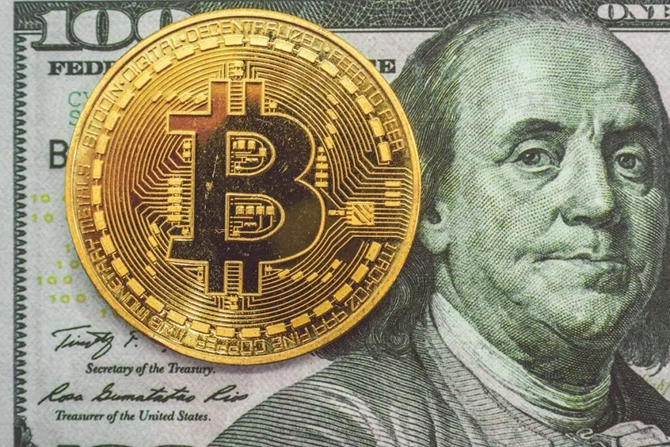
The rise of Bitcoin, the world’s first decentralized cryptocurrency, has sparked widespread debates and discussions about its potential to replace traditional fiat currencies. In recent years, Bitcoin has gained significant attention as a disruptive force in the financial industry, leading some to question whether this virtual exchange could eventually replace the US dollar as the world reserve currency and become a medium of exchange for global trade.
In this blog post, we will delve into the various factors that need to be considered when discussing the possibility of Bitcoin replacing the US dollar. We will examine the advantages and challenges associated with Bitcoin’s widespread adoption and assess the potential impact this digital asset can have on global currency dynamics. By doing so, we aim to provide a comprehensive analysis that will shed light on the prospects of Bitcoin as a viable alternative to traditional currencies.
Understanding Bitcoin and the US Dollar
To evaluate the potential of Bitcoin replacing the US dollar, it is crucial to understand the characteristics and functions of both currencies. Bitcoin, introduced in 2009, is a decentralized digital currency based on blockchain technology. Bitcoin operates independently of any central authority or government, making it immune to the influence of monetary policies or geopolitical events.
On the other hand, the US dollar has been the dominant global reserve currency for decades. It is backed by the economic and political stability of the United States and serves as the primary medium of exchange for international transactions. The US dollar’s status as the world’s reserve currency has provided numerous benefits to the US economy.
Advantages of Bitcoin as a Currency
Bitcoin possesses several unique qualities that make it an attractive alternative to traditional currencies. Firstly, this digital asset offers a decentralized and transparent payment system, allowing for peer-to-peer transactions without the need for intermediaries. This characteristic makes Bitcoin particularly appealing to individuals and businesses seeking financial sovereignty and enhanced privacy.
Secondly, Bitcoin’s limited supply, with a maximum cap of 21 million coins, provides an alternative to fiat currencies that are subject to inflationary pressures. Bitcoin’s scarcity has led some proponents to view it as a digital store of value, similar to gold.
Additionally, Bitcoin’s borderless nature enables cross-border transactions with reduced fees and faster settlement times compared to traditional banking systems. This decentralized feature has the potential to facilitate global trade and financial inclusion, especially in regions with limited access to banking services.
Challenges and Limitations of Bitcoin
While Bitcoin presents several advantages, it also faces significant challenges and limitations that hinder its widespread adoption as a replacement for the US dollar. One major hurdle is scalability, as Bitcoin’s current transaction processing capacity is limited, leading to high fees and slower confirmation times during periods of high demand.
Regulatory uncertainty and concerns over illicit activities are other significant challenge for Bitcoin. Governments worldwide have grappled with how to regulate cryptocurrencies, which has resulted in a patchwork of approaches that vary from country to country. This regulatory landscape creates uncertainty for businesses and consumers alike and hinders them to use bitcoin as a medium of exchange.
Furthermore, the energy consumption associated with Bitcoin mining has raised environmental concerns. The process of validating transactions and securing the network through mining requires substantial computational power, resulting in a significant carbon footprint. Addressing these environmental concerns is crucial for Bitcoin’s long-term sustainability.
Impact on Global Currency Dynamics
The potential displacement of the US dollar by Bitcoin would have profound implications for global currency dynamics. A shift towards Bitcoin could disrupt existing financial systems, challenging the US dollar’s role as the world’s reserve currency.
Bitcoin’s decentralized nature would reduce reliance on central banks and provide an alternative financial system outside the control of any single nation. This shift could reshape global economic power structures and potentially reduce the influence of central banks on monetary policies.
However, it is important to note that the US dollar’s dominance is deeply ingrained in the global financial system. The widespread adoption of Bitcoin would require overcoming numerous regulatory, technological, and social barriers. Additionally, concerns about stability, security, and volatility could hinder Bitcoin’s acceptance as a global currency.
Conclusion
While the idea of Bitcoin replacing the US dollar is intriguing, it remains highly speculative and faces numerous challenges. Bitcoin’s advantages, such as decentralization, transparency, and borderless transactions, make it an appealing alternative to traditional currencies. However, issues of scalability, regulatory uncertainty, environmental impact, and volatility present significant obstacles to its widespread adoption.
The future of Bitcoin and its potential to replace the US dollar will largely depend on how these challenges are addressed. Additionally, it will require global consensus, technological advancements, and regulatory frameworks that foster stability, security, and trust.
Ultimately, whether Bitcoin can replace the US dollar as a world reserve currency is a complex question with no definitive answer at this time. However, the emergence and growth of cryptocurrencies like Bitcoin have undoubtedly opened new possibilities for the future of money and global financial systems.
Disclaimer: Information provided in this blog is only for educational purposes and must not be considered financial advice. It is recommended to do your research and consult with your financial advisor.
For further insights, trends, and information about cryptocurrencies, sign-up at Coin-E-Coins.



1 Comment